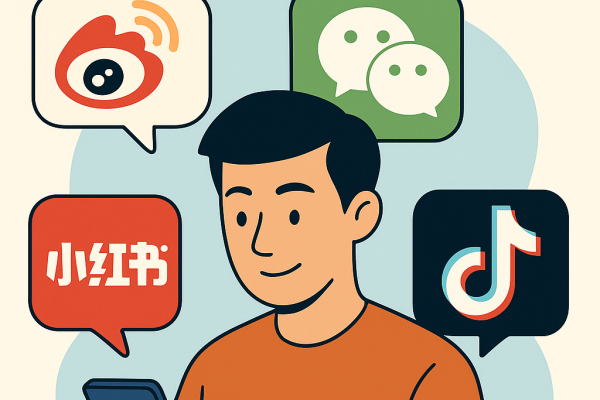Greetings and Connecting with Local: How to Say ‘How Are You’ in Chinese
Want to connect authentically with Chinese speakers? Learning to say “How are you?” is more than just polite—it’s key to building rapport and showing respect. This simple phrase opens doors to deeper connections and enriching cultural experiences. Discover the various ways to ask “How are you?” in Mandarin, from formal greetings like “nǐ hǎo ma?” to casual inquiries like “chī le ma?”, and unlock the power of genuine communication. Start building stronger relationships today!
Important information
- “How are you? in Chinese is more than just polite; it builds connections and shows respect.
- The most common way to ask “How are you? is 你好吗 (nǐ hǎo ma?). More casual options exist, like 你怎么样 (nǐ zěnme yàng?) or 吃了吗 (chī le ma?), which translates to “Have you eaten?”.
- Tone is crucial in Mandarin. Mispronunciation can change meanings.
- Asking about someone’s health (Shēntǐ hǎo ma?) or if they’ve eaten (Chī le ma?) shows care, especially towards elders.
- Show genuine interest by actively listening, remembering details, and asking follow-up questions.
Understanding the Importance of Saying ‘How Are You’ in Chinese
In Chinese culture, the seemingly simple question “How are you?” carries significant weight. More than mere politeness, it demonstrates respect and fosters connection, forming a cornerstone of Mandarin conversations. This initial greeting signals a willingness to engage and builds rapport with native speakers, showcasing cultural sensitivity and strengthening relationships. Research even underscores the importance of greetings in cross-cultural understanding, highlighting their role in promoting positive interactions.
What Makes This Phrase Essential for Social Interactions?
Building connections and sparking conversations starts with politeness and respect. This shows care and fosters goodwill, valuing health and well-being while acknowledging shared experiences and recognizing important moments.
How Can Mastering This Phrase Enhance Your Experiences?
Learning to ask “How are you?” in Chinese can greatly enhance your interactions. It demonstrates cultural respect, strengthens bonds with native speakers, and opens doors to authentic experiences like invitations to local events. This simple gesture also improves communication and builds rapport, enriching your travels and fostering deeper connections within Chinese-speaking communities. Asking “How are you?” is a small phrase with a big impact.
Common Phrases to Say ‘How Are You?’ in Chinese
Learn how to greet someone in Chinese by asking “How are you?”. The most common way is 你好吗 (nǐ hǎo ma?), which directly translates to “How are you?”. For a more casual greeting, use 你怎么样 (nǐ zěnme yàng?). To ask about their overall well-being, try 一切都好嗎 (yīqiè dōu hǎo ma?), meaning “Is everything going well?”. You could also ask about their day with 你今天过得怎么样 (nǐ jīntiān guò dé zěnme yàng?). Finally, inquire about their recent activities with 你最近忙些什麼 (nǐ zuìjìn máng xiē shénme?), meaning “What have you been busy with lately?”.
What Are the Basic Phrases in Mandarin Chinese?
Learn some common Mandarin greetings:
- “Nǐ hǎo ma” means “How are you?”.
- For a more personal touch, use “Zuìjìn zěnmeyàng,” meaning “How have you been lately?”.
- “Chī le ma” translates to “Have you eaten?” and reflects Chinese culture’s emphasis on food and well-being.
How Many Ways Can You Ask ‘How Are You?’ in Chinese?
For a formal “How are you?”, use 你好吗 (nǐ hǎo ma).
A more nuanced “Is everything going well?” is 一切都好吗 (yīqiè dōu hǎo ma), perfect for a colleague.
To ask “How is your day going?”, try 你今天过得怎么样 (nǐ jīntiān guò dé zěnmeyàng).
Casually, you could use 吃了吗 (chī le ma), which translates to “Have you eaten?”.
For a friendly “How have you been lately?”, opt for the more informal 最近怎么样 (zuìjìn zěnmeyàng).
How Do Casual Greetings Differ from Formal Ones?
Greet close Mandarin-speaking friends with a casual “hey” (嘿) or “morning” (早). For formal settings, use “nǐ hǎo” (你好), meaning “hello,” to respectfully greet elders and strangers.
To catch up with someone you know, try “Zuìjìn zěnmeyàng?” (最近怎么样?) meaning “How have you been lately?” Alternatively, use “Zuìjìn hái hǎo ma?” (最近还好吗?), which translates to “Everything alright lately?” Both are informal greetings.
Proper tone is crucial in Mandarin. Mispronunciation can completely change a word’s meaning. While respect is important, avoid overly formal phrases with friends, as it can sound unnatural. Observing these cultural nuances ensures your greetings are always appropriate.
Exploring Cultural Nuances in Chinese Greetings
Chinese greetings carry deep cultural meaning, expressing respect and understanding of social customs. They often convey care for well-being, reflecting a core societal value.
Understanding these subtleties improves interactions. Greetings demonstrate respect for social hierarchy and convey genuine care. For example, asking “Shēntǐ hǎo ma?” (How is your health?) shows concern, especially to elders or those seen less often. This underscores the importance of relationships and health in Chinese culture.
Asking “Have you eaten?” signifies care, not a dinner invitation. It reflects a time when food security was paramount, showing concern for another’s basic needs. Today, it’s a casual greeting, demonstrating thoughtfulness and connection.
What Are the Cultural Meanings Behind These Greetings?
Showing politeness and respect is paramount in Chinese greetings. A simple “你好吗 (Nǐ hǎo ma?)”—How are you?—demonstrates care and strengthens bonds, reflecting the cultural emphasis on relational harmony. Using appropriate greetings not only builds rapport but also conveys cultural sensitivity.
When Should You Use Different Greetings?
Greet friends casually, for example, with a simple “hi”.
In professional contexts or when meeting acquaintances, use formal greetings. Too much formality with friends may appear insincere.
Be mindful of cultural norms and pronunciation, especially tonal languages, to avoid misunderstandings. Mispronouncing tones can cause confusion.
Practicing with native speakers is invaluable for developing social fluency and cultural understanding.
How to Respond to ‘How Are You?’ in Chinese
In Mandarin, “How are you?” can be answered with “我很好 (wǒ hěn hǎo),” meaning “I’m very well.” Alternatively, “我还好 (wǒ hái hǎo)” conveys “I’m okay.” Express gratitude by adding “谢谢 (xièxie),” or “thank you,” creating the phrase “我很好,谢谢 (wǒ hěn hǎo, xièxie),” which translates to “I’m very well, thank you.”
If you’re not feeling well, use “我不太好 (wǒ bù tài hǎo),” meaning “I’m not so good.”
What Are the Common Responses in Mandarin?
Several ways to respond to “How are you?” in Mandarin exist. Common replies include “wǒ hěn hǎo” (我很好), meaning “I’m very well,” or “hái bùcuò” (還不錯), which translates to “Not bad.” Express gratitude with “xièxie guānxīn” (謝謝關心), meaning “Thanks for your concern.” You could also simply say “hái xíng” (還行), meaning “I’m alright.” For so-so days, there’s “mǎmǎhūhū” (馬馬虎虎).
How Can You Express Gratitude When Responding?
“Xièxie guānxīn” is a common and valuable Chinese phrase meaning “thank you for your concern.” Use it to politely express gratitude when someone inquires about your well-being. This simple acknowledgment of their care strengthens your bond.
Practical Tips for Greeting and Connecting with Locals
Engaging in conversations involves demonstrating genuine curiosity. Inquire about their loved ones, pastimes, or profession to show you care, and reciprocate by sharing your own experiences. Active listening and thoughtful responses build rapport, while a smile and eye contact convey respect and create a welcoming environment. Remembering details from previous conversations demonstrates that you value the relationship.
- Inquire about their loved ones, pastimes or profession.
- Reciprocate by sharing your own experiences.
- Use active listening and give thoughtful responses.
- Smile and make eye contact.
- Remember details from previous conversations.
Showing interest in someone’s well-being can be as simple as asking how they are. Inquire about specific aspects of their life, such as work or family, to demonstrate genuine interest, and follow up on details from past conversations. Offer support if appropriate, and demonstrate concern and empathy through active listening, thoughtful responses, maintaining eye contact, and nodding. Participating in shared activities strengthens bonds.
- Directly ask how they are doing.
- Inquire about their work or family.
- Follow up on previous conversations.
- Offer support when appropriate.
- Practice active listening.
- Maintain eye contact and nod.
- Participate in shared activities.
Show genuine interest. Ask about their loved ones, hobbies, or career. Share your own experiences thoughtfully.
Be an active listener. Provide thoughtful responses and maintain eye contact to build rapport and show respect. A smile creates a welcoming environment.
Remember and follow up. Recalling details from past conversations and inquiring about specific aspects of their life, like work or family, shows attentiveness and genuine interest.
Offer support and empathy. Demonstrate concern by offering assistance when needed and showing empathy through active listening and thoughtful responses.
Strengthen your connection. Participate in shared activities and learn about their interests to create stronger bonds and demonstrate a sincere desire to connect.
How to Start a Conversation in Mandarin?
Casually greet someone in Mandarin by saying *Hēi*, much like the English “Hey”. For a more formal approach, use *Nǐ hǎo* (“Hello”). To express genuine interest, try *Zuìjìn zěnmeyàng?*, meaning “How’s it going recently?”. This friendly question invites conversation and fosters connection.
What Are Some Ways to Show Interest in Someone’s Well-being?
Common Mandarin greetings often reflect care and concern. “Zuìjìn zěnmeyàng?”, similar to “How have you been lately?”, is a standard greeting. “Chī le ma?” meaning “Have you eaten yet?”, shows particular care in Chinese culture. For elders or those you haven’t seen recently, “Shēntǐ hǎo ma?”, meaning “Are you well?”, expresses concern for their health. These phrases convey warmth and genuine interest.
















